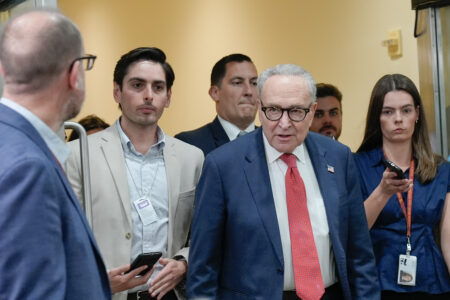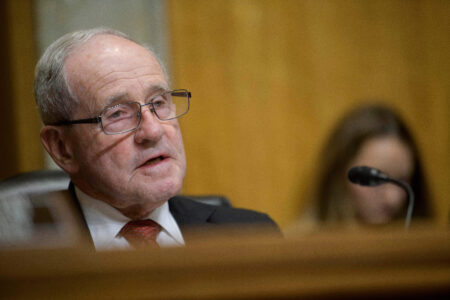Pediatricians want Congress to crack down on unhealthy ads
Doctors say commercials contribute to eating disorders, alcohol use, teen sex
Chicago ? Inappropriate advertising contributes to many kids’ ills, from obesity to anorexia, to drinking booze and having sex too soon, and Congress should crack down on it, the American Academy of Pediatrics says.
The influential doctors’ group issued a new policy statement in response to what it calls a rising tide of advertising aimed at children. The policy appears in December’s Pediatrics, scheduled for release today.
“Young people view more than 40,000 ads per year on television alone and increasingly are being exposed to advertising on the Internet, in magazines, and in schools,” the policy says.
Advertising examples cited in the statement include TV commercials for sugary breakfast cereals and high-calorie snacks shown during children’s programs and ads for Viagra and other erectile dysfunction drugs shown during televised sports games.
The statement also is critical of alcohol ads that feature cartoonish animal characters; fast-food ads on educational TV shown in schools; magazine ads with stick-thin models, and toy and other product “tie-ins” between popular movie characters and fast-food restaurants.
These pervasive ads influence kids to demand poor food choices, and to think drinking is cool, sex is a recreational activity and anorexia is fashionable, the academy says.
Interactive digital TV, expected to arrive in a few years, will spread the problem, allowing kids to click on-screen links to Web-based promotions, the new policy says.
Restrictions sought
In response, the academy says doctors should ask Congress and federal agencies to:
¢ ban junk-food ads during shows geared toward young children;
¢ limit commercial advertising to no more than 6 minutes per hour, a decrease of 50 percent;
¢ restrict alcohol ads to showing only the product, not cartoon characters or attractive young women;
¢ prohibit interactive advertising to children on digital TV.
The academy also says TV ads for erectile dysfunction drugs should be shown only after 10 p.m.
Jeff Becker, president of the Beer Institute, an industry group for breweries, said parents have more influence than advertising on teens’ decisions to drink. He also said brewers work to ensure that beer ads appear in adult-oriented media. For much of the sports programming where beer ads appear, most viewers are at least 21, Becker said.
“The American Academy of Pediatrics is wrong to blame alcohol advertising for the actions of underage teens who willingly break the law to drink illegally,” he said.
Critics of advertising restrictions say it’s a free-speech issue. But the academy notes that several Western countries, including Sweden, Norway, Denmark, Belgium and Greece, limit ads directed at children.
“What kind of society exploits its children and teenagers for money? This is an example of where public health really has to trump capitalism,” said Dr. Victor Strasburger, lead author of the policy statement and an adolescent medicine specialist at the University of New Mexico in Albuquerque.
Advertising aimed at children has come under increasing scrutiny in recent years, particularly because of data showing that growing numbers of U.S. children – now about 17 percent – are obese.
Spokespeople for Viacom, whose holdings include TV’s Nickelodeon network and MTV, declined to offer immediate comment on the report. Viacom has urged its marketing partners to advertise healthier products, and is among media companies that have been involved in discussions with federal agencies and advocacy groups about advertisers marketing to children.
Circumstantial evidence
While hard scientific data linking advertising with children’s health ills is lacking, Strasburger said there’s compelling circumstantial evidence suggesting there’s a connection.
Last year, the Institute of Medicine agreed that evidence suggesting that TV ads contribute to childhood obesity is compelling and said industry should market healthy foods to children.
And in September, the Federal Communications Commission said it will study potential links between TV ads and rising rates of obesity in U.S. children.
The food industry has started to respond.
Two weeks ago, McDonald’s joined nine major food and drink companies in vowing to promote more healthy foods and exercise in their child-oriented advertising. And last year Kraft Foods said it would curb ads to young children for snack foods including Oreos and Kool-Aid.
Harvard psychologist Susan Linn, a co-founder of the Campaign for a Commercial-Free Childhood, praised the academy’s policy and said it doesn’t overstate the effects of advertising on children.
“I’m hopeful that policymakers will listen,” Linn said. Self-regulation in the food industry, without a nudge from government, won’t work, she said.





